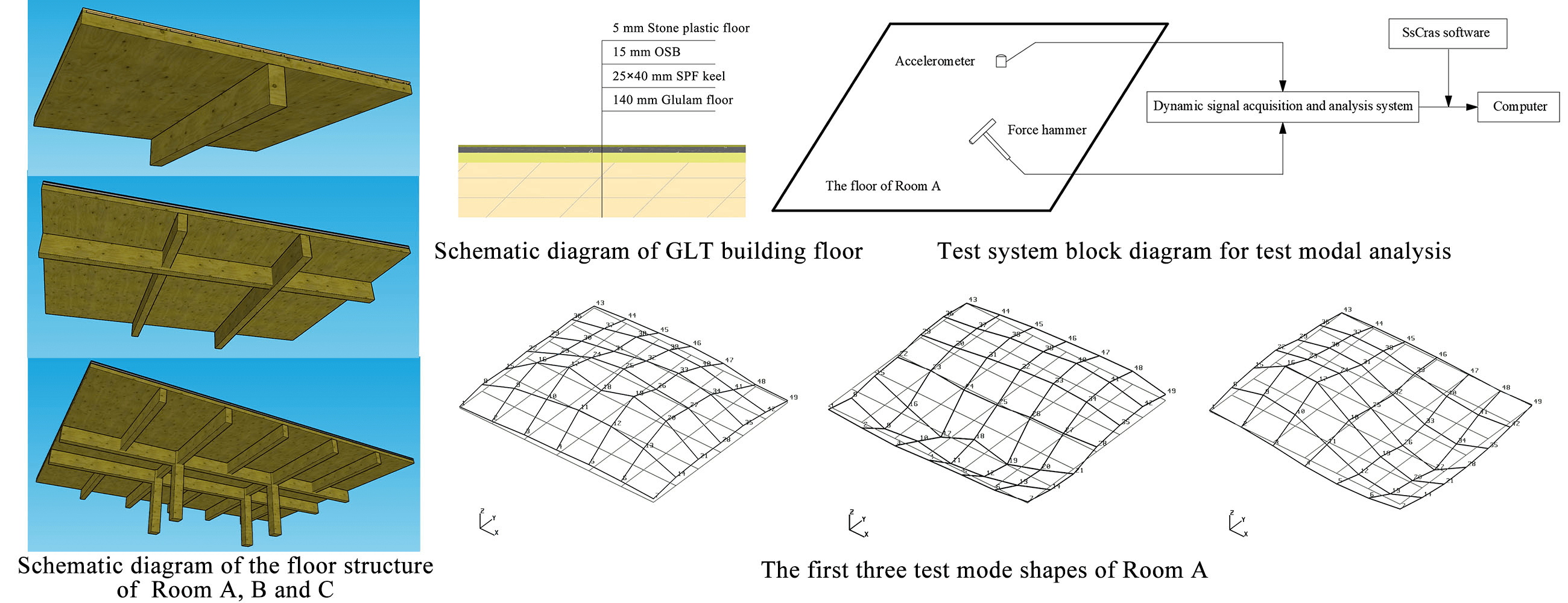 Open Access
Open Access
ARTICLE
Experimental Mode and Vibration Comfort Analysis of High-Rise Glulam Building Floor Structure
College of Materials Science and Engineering, Nanjing Forestry University, Nanjing, 210037, China
* Corresponding Author: Zheng Wang. Email: .
(This article belongs to the Special Issue: Bio-Composite Materials and Structures-2021)
Journal of Renewable Materials 2023, 11(6), 2729-2743. https://doi.org/10.32604/jrm.2023.025867
Received 03 August 2022; Accepted 26 August 2022; Issue published 27 April 2023
Abstract
In order to better meet the objective requirements of the use safety of the high-rise glulam building floor structure and the living comfort of the residents, the transient excitation, environmental excitation and frequency spectrum identification methods were used to carry out experimental modal test in-site on the three rooms numbered A, B and C of the same glulam structural building. The three rooms have different functions, different floor sizes and different floor supporting structures. The research results have shown that the first-order bending frequency of the floor structure of Room A is 27.50 Hz, the transverse second-order bending frequency is 34.75 Hz, the longitudinal second-order bending frequency is 53.25 Hz, and the first-order torsional frequency is 56.25 Hz. The reinforced wooden beam at the bottom of the floor of Room A increases the transverse stiffness of the floor structure, but does not offset the anisotropy caused by the longitudinally installed glulam floors. The fundamental frequency values of the floor structures of the three rooms numbered A, B, and C are 27.5, 13 and 18 Hz, respectively. This has a relatively high innovation and reference significance for integrating the theory of structural dynamic characteristics with the dynamic testing technology, improving the design level of high-rise glulam structure buildings, and improving the living comfort of residents.Graphic Abstract

Keywords
Cite This Article
 Copyright © 2023 The Author(s). Published by Tech Science Press.
Copyright © 2023 The Author(s). Published by Tech Science Press.This work is licensed under a Creative Commons Attribution 4.0 International License , which permits unrestricted use, distribution, and reproduction in any medium, provided the original work is properly cited.


 Submit a Paper
Submit a Paper Propose a Special lssue
Propose a Special lssue View Full Text
View Full Text Download PDF
Download PDF Downloads
Downloads
 Citation Tools
Citation Tools